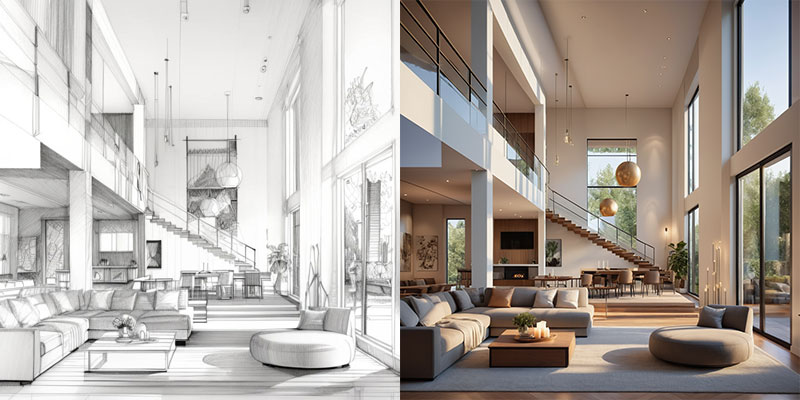دعو الأصدقاء واحصل على عملات مجانية لكم جميعًا
baikova
8
تقرير
Texture and Color Interaction: Emphasize the interplay between light grey walls and natural wood flooring, focusing on the smooth transition between these materials.

صورة كبيرة
Molding Details: Focus on the elegant ceiling molding and how it complements the minimalist space, without the distraction of furniture or decoration.

صورة كبيرة
Natural Light and Shadow: Highlight how natural light enters the room and casts shadows, creating subtle depth and contrast on the light grey walls.

صورة كبيرة
Clean Architectural Lines: Emphasize the clean, sharp lines between the ceiling, walls, and floor, creating a simple yet sophisticated design.

صورة كبيرة
Contrast in Material Finishes: Explore the contrast between the smooth matte walls and the subtly textured wood flooring.

صورة كبيرة
Light Play: Focus on how the natural light interacts with the textures in the room, creating subtle highlights and shadows.

صورة كبيرة
Color Palette: Train on the calm, neutral color palette with soft, harmonious transitions between light grey, white, and light wood tones.

صورة كبيرة
Empty Space Balance: Focus on how the balance of empty space creates a peaceful and minimalist atmosphere.

صورة كبيرة
Architectural Focus: Highlight the architectural elements of the room, such as the ceiling molding, window, and baseboards, ensuring the minimalist style is maintained.

صورة كبيرة
Soft Reflections: Emphasize the soft, natural reflections on the matte surfaces from the incoming light, creating a soothing atmosphere without any additional elements.

صورة كبيرة
Design a cozy children's room with a small bed, a colorful toy storage unit, and a soft rug for playtime. The room features a small desk for drawing or studying, with a comfortable chair. On the walls, add playful decorations such as framed artwork or a mural. Include open shelving for books and toys, and a nightlight by the bed for a warm, calming atmosphere. The overall color palette should be soft pastels, creating a cheerful and inviting space

صورة كبيرة
لا توجد بيانات حتى الآن


